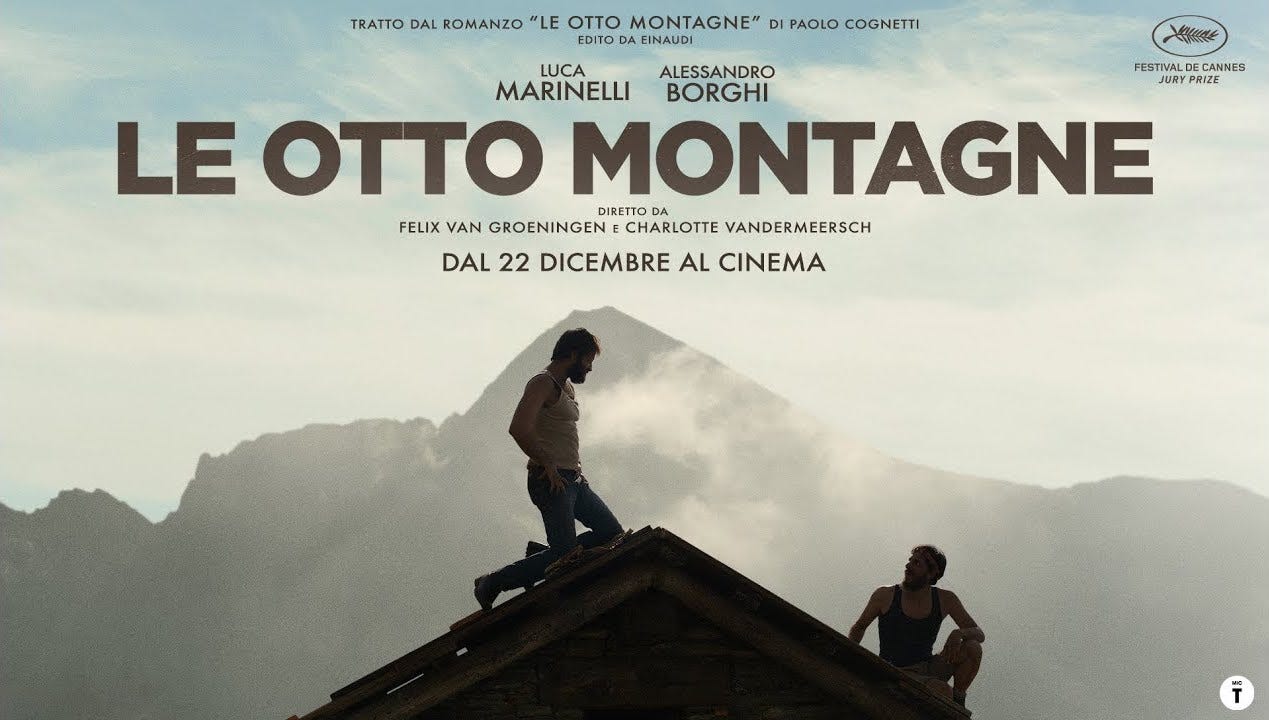Witnessing Felix Van-Groeningen and Charlotte Vandermeersch’s visually epic and emotionally turbulent film in the almost entirely empty Curzon Bloomsbury was an experience in itself - and thank God that we managed. As usual, I couldn’t find time - or perhaps pre-empted emotional capacity - for this film until the last few days it was showing in London, however I’m very happy I did.
Based on Paolo Cognetti’s screenplay of the same name, Le Otto Montagne is a story which masterfully tackles the task of fitting its multitude of themes - childhood, freedom, purpose, identity, nature, and at its core, friendship - into a single feature. Set in the vast mountain ranges of the Italian alps, the film begins with the meeting of two boys, Pietro and Bruno, on the cusp of teenhood. One is a city boy from Torino, the other the last child in a farming village with a rapidly dwindling population. The two each find a brother in the other, and such is the beginning of a decades-long, complex yet pure friendship, ebbing and flowing with the tide of the two mens’ lives.
Love, loss and the implicitly looming changes of the natural world and its stewards in the latter half of the 20th century are threaded throughout the story, however this film should not be taken as a melancholy or bitter tale. Although there are certainly moments of emotional complexity and I did shed a tear or two, this only served to emphasise the unadulterated joy, exploration and kinship of the soul between the two protagonists and the people in their lives. From the death of a parent to self-inflicted solitude, wasted potential to dairy farming, this film has it all. The incredibly gorgeous landscape of the Italian alps only makes Le Otto Montagne that much sweeter.
The message I found most salient was that there is a time for everyone. As one protagonist falters, the other progresses, and just as quickly are the roles reversed. The film is a lesson in gratitude, if anything, and a reminder that even if our relationships are not perfect, they are worth fighting for. My only criticism is the slightly prolonged depiction of Pietro’s to-and-fro missions of self-discovery between Italy and Nepal, which could have been reduced to keep the otherwise well-paced momentum of the story. Don’t let the film’s length deter you, however. It’s really, really beautiful - and a rare gem of a film from which anyone can draw a message that seems whispered just to them.




